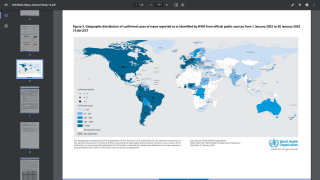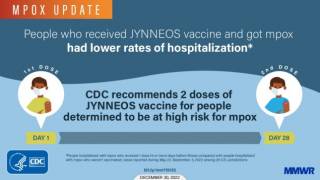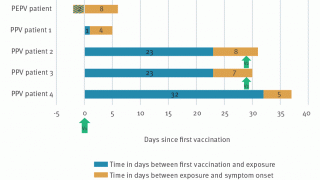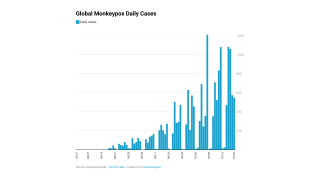U.S. NIH Launches Second Monkeypox Treatment Study

The U.S. National Institutes of Health (NIH) announced yesterday that a clinical trial evaluating the antiviral drug TPOXX (tecovirimat) had begun in the Democratic Republic of the Congo (DRC).
The phase 2 clinical trial evaluates TPOXX's safety and ability to mitigate monkeypox symptoms and prevent serious outcomes, including death.
The National Institute of Allergy and Infectious Diseases (NIAID) and the DRC's National Institute for Biomedical Research are co-leading the trial as part of the government-to-government PALM partnership.
PALM is short for "Pamoja Tulinde Maisha" a Kiswahili phrase that translates to "together save lives."
Previously, a late-stage Phase 3 clinical trial evaluating TPOXX with about 500 people was launched in the U.S. on September 9, 2022.
One difference in these studies is the monkeypox virus (MPXV) type.
According to the WHO, cases identified as part of the ongoing global outbreak are primarily caused by MPXV Clade IIb.
Clade I, which is estimated to cause more severe disease and higher mortality than Clade IIb, is responsible for infections in the DRC.
"Monkeypox has caused a high burden of disease and death in children and adults in the Democratic Republic of the Congo, and improved treatment options are urgently needed," said NIAID Director Anthony S. Fauci, M.D., in an NIH press release on October 12, 2022.
"This clinical trial will yield critical information about the safety and efficacy of tecovirimat for monkeypox."
TPOXX is made by SIGA Technologies, Inc. and is approved by the U.S. Food and Drug Administration (FDA) for the treatment of smallpox.
The FDA confirmed on July 29, 2022, that there is currently no human data demonstrating the efficacy of TPOXX for the treatment of monkeypox.
The U.S. CDC hosted a COCA call on October 6, 2022, and presented: Situational Update for Clinicians about Severe Monkeypox Virus Infections, including information on the use of TPOXX.
The drug impedes virus spread in the body by preventing virus particles from exiting human cells. The drug targets a protein found on both the virus that causes smallpox and the monkeypox virus.
Since the 1970s, the MPXV has caused sporadic cases and outbreaks, primarily in the rainforest areas of central Africa and in west Africa.
As of October 12, 2022, the U.S. CDC reported 27,022 monkeypox/orthopoxvirus cases had been confirmed since May 2022.
Globally, 72,457 cases and 26 related fatalities have been confirmed this year.
And the Africa CDC has reported 3,326 cases of monkeypox and 120 fatalities in the DRC from January 2022 to September 21, 2022.
The MPXV can transmit among humans by direct contact with skin lesions, body fluids, and respiratory droplets, including through intimate and sexual contact and by indirect contact with contaminated clothing or bedding.
Monkeypox can cause flu-like symptoms and painful skin lesions.
Complications can include dehydration, bacterial infections, pneumonia, brain inflammation, sepsis, eye infections, and death.
To prevent MPXV infections, the JYNNEOS® (IMVANEX®) has been offered in the U.S. and globally since late May 2022. However, vaccine efficacy data from the FDA remains pending.
Additional MPXV outbreak information is posted at Monkeypox Today.
PrecisionVaccinations publishes fact-checked, research-based news manually translated and curated for mobile readership.
Our Trust Standards: Medical Advisory Committee
























